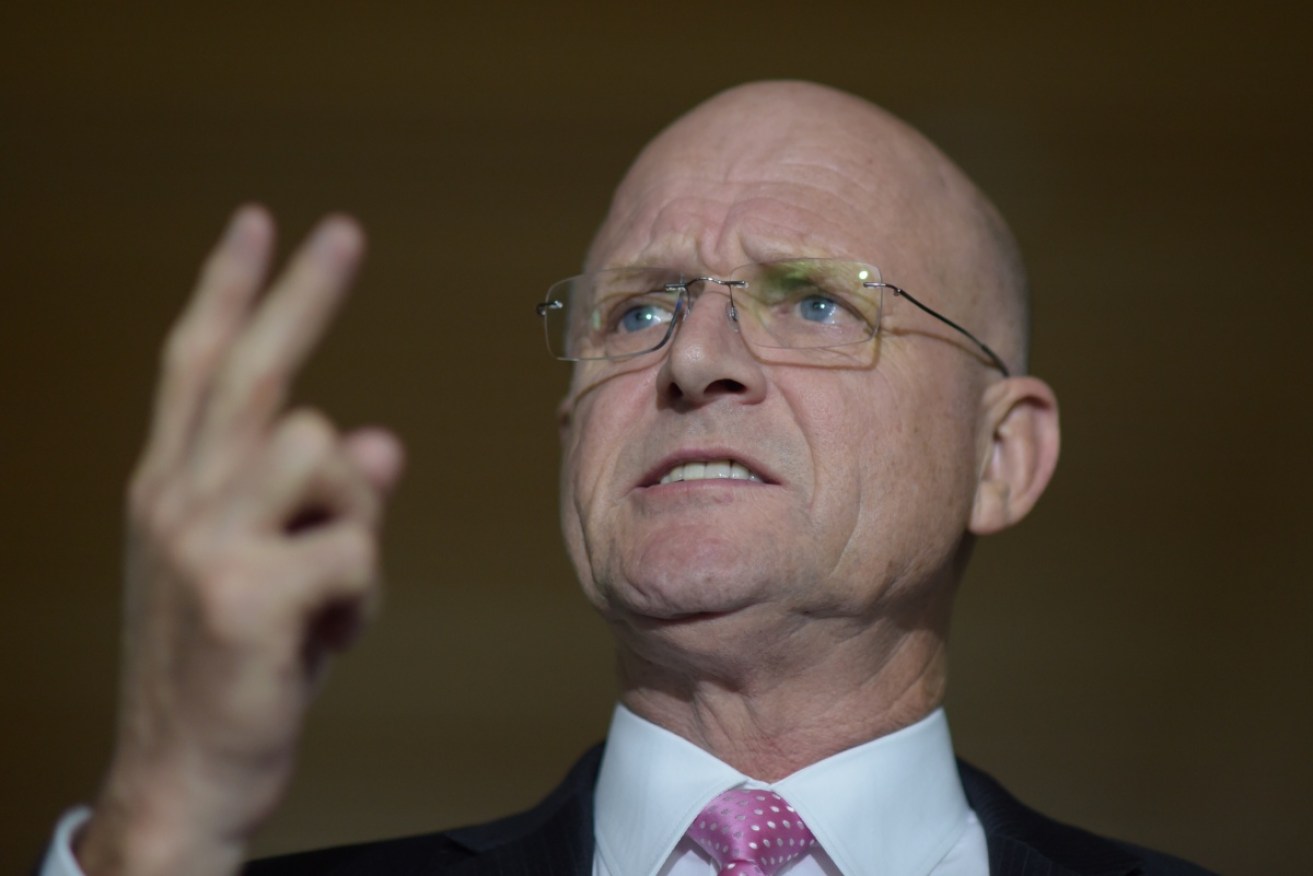New Senate crossbench to push for racial discrimination law changes


Senator Leyonhjelm says people are 'stupid' if they misunderstand the context of his comment about the Melbourne tragedy. Photo: AAP
The federal government could face the first show of power from the new Senate with crossbenchers set to pressure for changes to the racial discrimination laws.
Liberal Democrat David Leyonhjelm, who’s been returned for a second term, says he’ll push for the scrapping of the entire section of the Racial Discrimination Act that makes it illegal to offend, insult or humiliate a person on the grounds of race.
“Free speech is free speech, there’s no qualification to it, let’s just remove 18C entirely and everything that goes with it,” Senator Leyonhjelm told ABC’s Insiders program on Sunday.
Section 18C prohibits anything which is “reasonably likely … to offend, insult, humiliate or intimidate another person or a group of people” because of their “race, colour or national or ethnic origin”.
Family First Senator Bob Day is also planning to introduce “modest” changes to the law, while One Nation Senator Malcolm Roberts says he’s worried people are too afraid to speak their mind for fear of being dismissed.
“We’re going to have a choice between my approach, which is going further, and the more modest approach,” Mr Day said.
Mr Roberts told Insiders minorities wouldn’t be hurt or humiliated unless they chose to take offence.
Malcolm Roberts on his party's position on section 18C of the Racial Discrimination Act. #insiders #auspol https://t.co/plBjKH3Chq
— Insiders ABC (@InsidersABC) August 6, 2016
“You can call me short, you can me fat, you can call me a Queenslander, you can call me a cane toad,” Mr Roberts said.
“Whatever you want to call me, the only person who decides whether I’m upset is me.”
Mr Leyonhjelm agreed with the New South Wales senator, saying: “Offence is always taken, not given.”
“Offence is always taken, not given. So if you don’t want to be offended, its up to you, don’t be offended, that’s it.”
Liberal Democrat senator David Leyonhjelm
“We’re not responsible for the feelings of other people, none of us are,” he said.
Broadcaster-turned-politician Derryn Hinch also wants to scrap 18C, after being approached by Senator Day in February about supporting the push to repeal the section.

New Senator Derryn Hinch has previously spoken out against Section 18C. Photo: AAP
Mr Hinch, who was jailed twice for breaching media reporting laws, last month signalled he’s like to repeal 18C in one of his first statements after being elected to the Senate.
“I’m offended and insulted that I can’t say anything that will offend or insult,” Mr Hinch said on July 4.
One Nation leader Pauline Hanson has also spoken out against the racial discrimination laws, calling for them to be scrapped altogether.
“We are entitled to freedom of speech and freedom of expression,’’ she said last month, adding the laws were “stifling people’s right to have an opinion”.

One Nation’s Pauling Hanson says the laws threaten our freedom of speech. Photo: AAP
The federal government had planned to change 18C of the Racial Discrimination Act in 2014, but subsequently dumped the proposal citing concerns for the relationship with the Muslim community.
Attorney General George Brandis ruled out changes to the legislation on ABC’s 7.30 earlier in the week, but Senator Cory Bernardi responded said “18C repeal is not off my agenda”.
Mr Bernardi and fellow Liberal Senators Dean Smith, Chris Back and Zed Seselja have previously backed changes to the racial discrimination laws.
Mr Roberts said the current racial discrimination laws were introduced to “nobble” conservative commentator Andrew Bolt, saying “Julia Gillard did that.”
The Racial Discrimination Act was first introduced in 1975 and changes to 18C were made in 1995 when Parliament passed the Racial Hatred Act. Ms Gillard did not win a seat in federal parliament until 1998.
When then Labor attorney-general Michael Hugh Lavarch introduced the changes into Parliament in November 1995, he made no mention of Andrew Bolt.
In 2011, Mr Bolt was successfully sued under the act for a series of articles he wrote on Aboriginals, including some that implied light-skinned people who identified as Aboriginal did so for personal gain.
- With AAP, ABC








